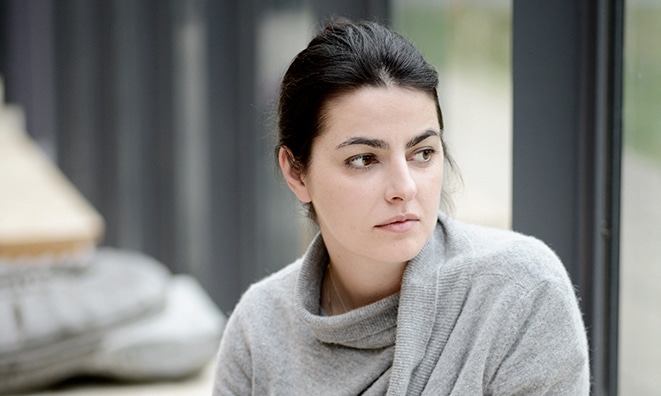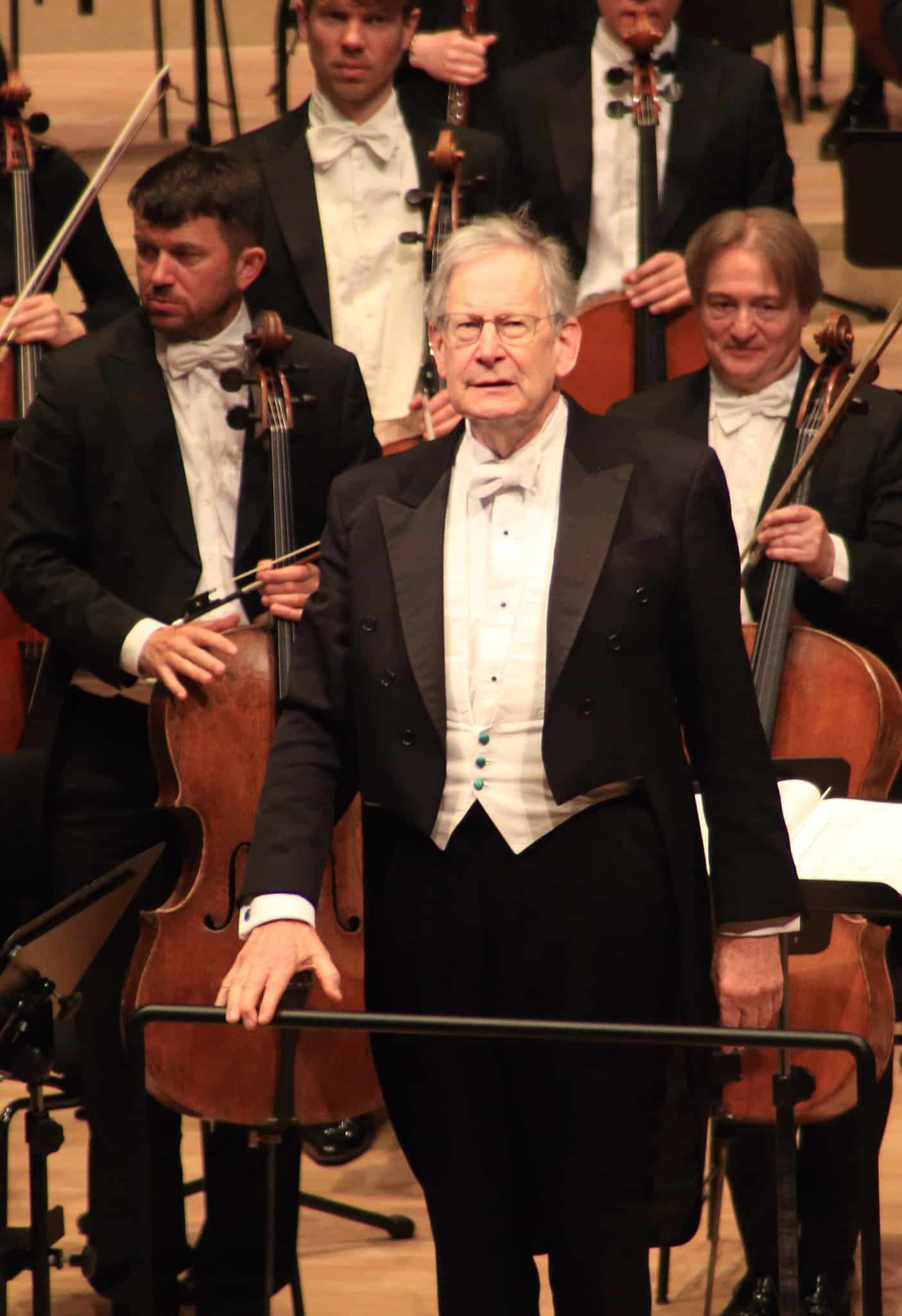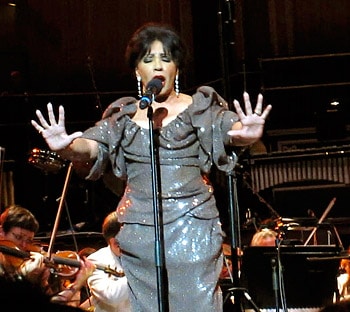A woman’s work in music
Daily Comfort ZoneWe’re sitting here enraptured by music of the Bulgarian-British composer Dobrinka Tabakova, championed by the Halle orchestra.
Tabakova, 44, pursues her own pathways in tonal harmony, impervious to fashions and musical politics.
Listen.






Dobrinka’s music is alays wonderful.
Enraptured? Bored out of my mind, more like.
Own pathway in tonal music? Then why does it sound so generic, like bad film music. This kind of pastiche derivative stuff can be easily churned out by 200 undergrads on the Berkelee undergraduate film scoring course.
And this is a blog that has chastised Karl Jenkins in the past. It’s of the same derivative vein.
It’s a hard pass from me on the rest of her music.
Whether her music is derivative or not is irrelevant, it is the expressive / musical quality that counts. Some pieces are simple and good, far above the level of Jenkins or undergrads. It takes good listening, and not simply hearing sounds and then getting the red stamp out. It is naive music and not very ambitious, but do listen to Berkely undergraduate film scoring course products and you will understand the difference.
By the way, ‘derivative’ has always been the core ingredient of the Western musical tradition; it is what composers DO with the material they find, that counts. No better examples of being derivative than Bach, Mozart, Beethoven, Brahms, Bruckner, Mahler, Ravel, Stravinsky and lots of others.
I always have to laugh at the “derivative” accusation. Name me a piece of music that isn’t, and I might take you seriously.
Yes yes and yes, this cello concerto is just phenomenal. Hope to hear it much more regularly soon – it’s outstanding. (And Guy Johnston, well, he’s a classy, world-class cellist, so, you know you’re in for a treat.
Great work, as always !
We used her Concerto for Cello and Strings for a new ballet in 2023 at San Francisco Ballet. Quite a lovely piece.
Bravo, Ms. Tabakova!! Wonderful music. More than that, she dared to confront the totalitarian/Orwellian power that forbids human music from being composed today.
“impervious to fashions and musical politics.”
This is really putting a tremendously courageous stand much too mildly, considering how the establishment has destroyed many a dissident contemporary composer’s career.
Modernism (nowadays entirely crumbled and withdrawn into a corner at the margins of music life and its perpetrators either dead or safely locked-up in old people’s homes) tried to stamp-out alternatives to their ideology, which were seen as obstacles to progress.
Beautiful, thank you for featuring music by a female composer!
I have have heard some of her compositions before. Excellent composer and deeply enjoyable music. Let’s hope we will hear more of her in the future.
Lovely!
It is ‘return to tradition’ coming from process music.
Once again I am confused with all these nationality labels. So, Tabakova, who lives in London since 1991 is “Bulgarian-British”, not “ex-Bulgarian” or “exiled Bulgarian”? Maybe then Netrebko is “Russian-Austrian” and Ilya Shmukler is “Russian-American”? Or maybe these labels should be dropped altogether since music has no borders?
Yes.
Culturally speaking, Tabakova is Bulgarian/Balkanian. Where she lives is irrelevant.
She was born in Bulgaria and became a British citizen as a youngster.
In fact, she is part of a much broader movement away from modernism, in which all kinds of options are tried-out: minimalism/process music, folklore, direct traditionalism, film music styles, pop confections that sound quasi-classical, etc. There is no longer any consensus of what defines ‘modern music’ and that is a good thing because the term has been abused for some 100 years by ideologically-driven groups.
But leaving modernism does not mean you automatically get something like artistic quality.
Some of Dobrinka Tabakova’s music sounds warm and expressive, quite an achievement today. You can hear the inheritance of eastern-European process music: Pärt, Vasks, etc.
Here is more of her:
https://www.youtube.com/watch?v=VCklkRwZ0aI
https://www.youtube.com/watch?v=3V42TUhj22I
https://www.youtube.com/watch?v=_VXRCNdNc5c
https://www.youtube.com/watch?v=Z59djB8N7Uo
https://www.youtube.com/watch?v=6oHu4UJATyo
I find it sympathetic but rather ‘uncooked’ as so much of this process-music style, amorph in form and meandering, like ‘easy listening music’.
So many of these ‘new-tonal’ composers seem to have hardly any knowledge of the repertoire of classical music, as if they come from outside the musical world and are timidly discovering how nice it is to use tonal relationships. This, in combination with lowering of standards in the concert circuit under the pressures of populism and ‘finding new audiences’, may give chances to this type of new music but in the same time may add to the decline of interest in concerts generally.
What a difference with new-tonal composers like David Matthews, Guillaume Connesson, Karol Beffa, James MacMillan and the like.
I was privileged to have supervised Dobrinka’s PhD.
So proud of her.
It is stunning to read all of her education trajectories, and that she acquired a PhD in composition – what could that mean? What is a Doctor in Musical composition?
She also studied with Simon Bainbridge, Diana Burrell, and Andrew Schultz, and took part in master classes of John Adams, Louis Andriessen, Alexander Goehr (know him), Olav A. Thommessen and Iannis Xenakis (of all people). And then: “…..impervious to fashions and musical politics” ?
These accolades don’t mean very much. And a PhD is rather an obstacle. Think of a performer who looks at a score and then finds-out the composer has a PhD, would that contribute to his interest? If anything, it has been the pedestallizing of academia in composition that did enormous harm to new music. The technically and theoretically most accomplished composers in the history of Western music never took a PhD at a university, and the one composer who towered above anybody else in terms of technical prowess, acquired his fame and status NOT because of this, but because he could let it speak musically: JS Bach.
I found this piece very beautiful.
The only thing that counts, what it does to listeners.
Thank you fir introducing me to an unknown composer. I’m going to try.